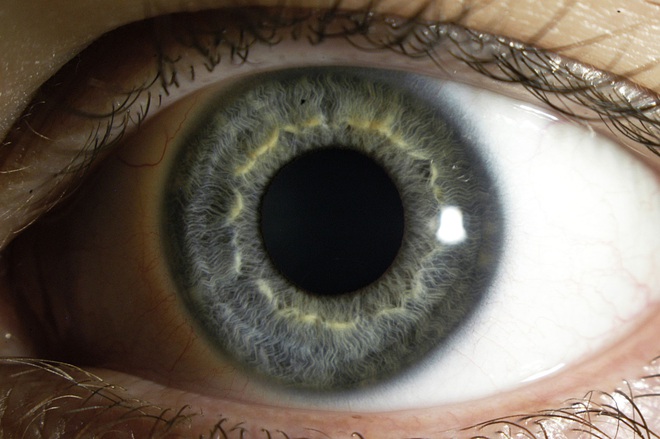A new study shows that the larger the diameter of a person’s pupils, the higher their IQ. It may be related to the area of our brain that controls pupil activity.
Our students will not only react to light, they will also reflect human states such as arousal, interest or mental exhaustion and other states. The US Federal Bureau of Investigation (FBI) even uses pupil dilation to detect if a person is lying.
Recently, a study conducted at the Georgia Institute of Technology laboratory in the United States showed that pupil size is closely related to differences in the intelligence of individuals. From tests of reasoning ability, attention and memory, it can be deduced that the larger the diameter of a person’s pupil, the higher their IQ. Indeed, the scientists also found that between the subjects with the highest and lowest scores on a cognitive test, the difference in pupil size was also very different and could be significant directly to the naked eye.
This surprising association was discovered when studying differences in the power of the human brain during memory tasks. In the past, we used pupil dilation to measure a person’s mental strain. This view was popularized by psychologist Daniel Kahneman in the 1960s and 1970s. So when researchers discovered that there was a definite relationship between basic pupil size and proven intelligence, the scientific community always has the impression that it is not certain of its authenticity.
For the same reason, the researchers decided to come from the US city of Atlanta to recruit more than 500 volunteers between the ages of 18 and 35, to conduct a larger study on the relationship between student height and intelligence. . Initially, they measured the pupil sizes of these subjects with an eye-tracking device. This device can use high performance cameras and computers to capture the light reflected from the pupil and cornea to obtain relevant data.
Scientists measured participants’ pupil sizes by having them stare at a blank computer screen for four minutes, as well as during breaks. Meanwhile, the eye tracker recorded data, allowing the team to calculate the average pupil size of each participant.
The fact that the pupil size is in fact the diameter of the round black hole in the center of the eye is between 2mm and 8mm. The pupil is surrounded by the colored area of the eye – the iris. Additionally, because bright light narrows the pupils, the team kept all subjects in the lab in a stable light state.
Next, participants had to complete a series of cognitive tests. These tests are designed to measure “flexible intelligence” (ability to solve new problems through reasoning) and “working memory capacity” (ability to solve problems) through reasoning, memorization of information. for a short period of time) and “attention control” (the ability to concentrate in a noisy environment).
For example, in an attention control test, subjects had to resist looking at the bold asterisks blinking on one side of the computer screen, but had to quickly look in the opposite direction to identify an English letter. Since the letter instantly disappears, even if the participant only glanced briefly at the blinking asterisk, the letter was likely to be missed. While humans have learned to use peripheral vision to respond to objects they see, and this skill allows us to effectively detect predators or prey, this task requires human participants to ignore blinking asterisks and instead wear special attention to letters.
The team found that a larger pupil was associated with more flexible intelligence and the ability to control attention and also had a small correlation with working memory, which revealed that there is a certain relationship. between the brain and the eye. Interestingly, pupil size was negatively correlated with age: older participants tended to have smaller and narrower pupils. However, after normalization for age, the aforementioned correlation between pupil size and cognitive abilities persisted.
But why is pupil size related to intelligence? Before answering this question, we need to understand what is going on in our brain. First, the size of the pupil is related to the activity of Locus coeruleus – a nerve nucleus located in the upper part of the brainstem that has extensive neural connections with other parts of the brain.
Second, Locus coeruleus will secrete norepinephrine – both a neurotransmitter and a hormone in the brain and body. It can regulate processes such as perception, attention, learning, and memory. Additionally, Locus coeruleus helps keep brain activity in an orderly state, so that different regions of the brain can work together to accomplish tasks and goals. Locus coeruleus dysfunction results in disruption of systemic brain function and has been implicated in various diseases including Alzheimer’s disease and Attention Deficit Hyperactivity Disorder.
In fact, the organization and arrangement of brain activities is so important that the brain has to spend most of its energy to maintain normal function, even when we are not doing anything during this time, for example, like just watching a computer or scroll through a phone. screen for a few minutes.
In addition, it is also assumed that people with larger resting pupils have a greater ability to regulate brain activity, which is good for cognitive function and resting brain function. Of course, more study is needed to explore this possibility and determine why taller pupils are associated with higher intelligence and better control of attention. But clearly there are still too many questions and mysteries compared to what we have just discovered.




